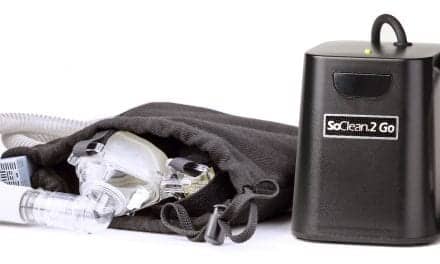The First Line Obstructive Sleep Apnea Treatment study (FLOSAT), which will compare oral appliances head-to-head against CPAP as first-line obstructive sleep apnea (OSA) therapy, has reached full enrollment.
FLOSAT is a prospective, independent, head-to-head, crossover study comparing the effectiveness of oral appliance therapy (OAT) as first-line treatment for sleep apnea versus CPAP therapy. ProSomnus precision intraoral medical devices are being used exclusively for the precision OAT arm of the study.
Designed and conducted by The Antwerp University Hospital, Belgium, FLOSAT’s objective is to evaluate the overall effectiveness of oral appliance therapy as a first-line treatment, including both efficacy and objective compliance, in patients recently diagnosed with moderate to severe OSA, waiting for a new CPAP device.
“At a time when medicine is moving toward patient-centric care models to optimize outcomes, a lack of validated therapeutic options has limited sleep clinicians to chiefly prescribing CPAP, particularly as first-line treatment,” says Len Liptak, co-founder and CEO of ProSomnus, in a release. “One of the strategic objectives of FLOSAT is to evaluate whether precision OAT is viable as a first-line treatment option for patients with moderate and severe OSA.”
The study measures treatment effectiveness as the product of therapeutic efficacy and nightly compliance. Efficacy is the reduction in OSA severity as measured by polysomnography. Nightly compliance will be tracked by micro-sensors embedded in the devices. The study will also examine patient preference.
The enrollment target for the study was 121 patients with moderate and severe obstructive sleep apnea. All 121 patients have already completed the oral appliance arm of the study, and researchers expect to have the full results of the comparison against CPAP in early 2023.
“Antwerp University Hospital continuously looks for ways to enhance the global medical community’s understanding of key health issues, including OSA,” says study investigator Olivier M. Vanderveken, MD, PhD, chair of the department of head and neck surgery at Antwerp University Hospital, in a release. “FLOSAT has the potential to reveal a great deal about the differences in efficacy between precision [oral appliance therapy] and CPAP, and we believe that measuring and comparing patient adherence to these two types of therapies will help us better understand their viability for patients with OSA.”
“If validated, FLOSAT should represent an important contribution toward a more patient-centric approach to treating OSA and away from the current one-size-fits-all modality,” Liptak says.
Illustration 36843775 © Sirup | Dreamstime.com





